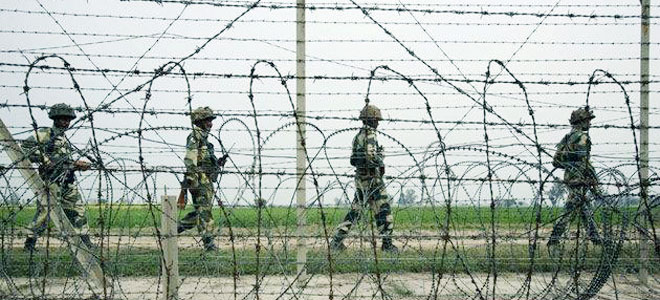
A file photo.
NEW DELHI (PTI): Accusing Pakistan of continuing to support "proxy war" in Jammu and Kashmir despite suffering casualties due to terror on its soil, Army Chief Gen Dalbir Singh on Tuesday said threats and challenges have been growing because of the "active borders".
The Army Chief said one will have to "wait and watch" if Pakistan Army has had a change of heart since the gruesome attack on an Army school in Peshawar last month that drew condemnation in India.
He also said that Indian security forces are carefully watching the situation in Afghanistan and its possible spillover into India.
"Threats and challenges have been growing, both in intensity as well as commitment, because of active borders that we have," Singh said addressing his annual press conference.
Talking about the security situation in militancy-hit Jammu and Kashmir, the Army chief said, "Pakistan is supporting proxy war in Jammu and Kashmir despite suffering casualties within their country".
He was referring to the recent casualties that the Pakistan Army had at the hands of Taliban militants.
Singh lauded the Army and other security forces for ensuring a safe environment to voters in Jammu and Kashmir which saw a high turnout in the recent Assembly election.
"People were confident of coming out to vote. Army and other security forces worked tirelessly not for weeks but months," he said.
The Army chief pointed out that 2014 saw the highest number of terrorists being neutralised in the state in recent years and put the figure at 110, out of which 104 were killed by the force.
Last year, 65 terrorists were killed. Singh said the high figure showed the effectiveness of the counter insurgency grid that the Army has set up in the state.
Singh said the recent attacks against the Army in Jammu and Kashmir showed the "desperation" of terrorists.
"The recent strikes by the terrorists not only reflect their desperation but are also a grim reminder that the terrorist infrastructure in Pakistan is intact," he said.
Talking about the rise in ceasefire violations, he said that the action has slowly moved to the International Border and not the LoC.
"That is probably, likely to be because of our counter infiltration grid is stronger on LoC," he said, adding that measures like 'obstacle systems' are making it difficult for the terrorists to infiltrate.
He admitted that there are areas, like open drains and streams, that are susceptible to infiltration attempts at the International Border.
Asked about the perception that Army commanders are not being given a free hand in operations, Singh strongly denied it.
"The commanders have a free hand to operate. I have given full freedom as far as operation is concerned. On the LoC, they have a free hand to retaliate to Pakistan firing in a manner that they feel is appropriate," the Army chief said.
However, he underlined that the Army has a "zero-tolerance" approach to human rights violations.
Talking about the situation in Afghanistan, Singh said the "spillover effect is being watched carefully".
He said the situation in Afghanistan has definitely improved to the extent that the US feels that they can leave the country to the Afghan national army to take care of the security situation.
"But definitely, the draw-down is likely to have its own effect. That cannot be ruled out. And we have to be prepared for it.
"Terrorist network can extend from Afghanistan to our side and J&K is one area where the effect could be felt. We are aware of this possibility and because of this we are keeping a careful watch," he said.
The Army Chief added that his force has a good tier system of counter infiltration grid.
"As and when we feel it needs to be further enhanced, we will definitely do that," he said.
The Army Chief said the force needs to modernise and enhance its operational effectiveness in the face of "numerous challenges".
Singh said on taking over as the Chief of the Army Staff about six months back, he had laid down his vision and identified thrust areas for the Army.
"These provide the guiding framework and reflect our aspirations to become a modern combat force capable of meeting our mandated role and responsibility," he said.
The officer said the first thrust was on infrastructure development especially along our Northern and North Eastern borders.
This "remains a priority to meet the large capability gap," he said, adding that the second was "capability enhancement".
"The raising of the Mountain Strike Corps is progressing as per laid down timelines. These efforts will significantly raise our capabilities on the Northern Front," he said.
He said another area of focus was modernisation, especially that of tanks and comprehensive overhaul of infantry combat vehicles.
"Concerted efforts are being made to make up deficiency of weapons and ammunition," he said, adding that critical area of focus was assault rifles, bullet-proof vests, helmets and night vision glasses.
Asked if the country is in a position to prevent another 26/11 type attack, the Army chief said the issue comes under the Home Ministry.
"The synergy between the Army and the Home Ministry is brilliant," he said, pointing out that Army personnel are posted across the country and if there is a need, the Army would "always be ready to assist the efforts of MHA".
"I assure the nation that your Army is ready and prepared, motivated, equipped, and singularly focused to promote our national interests and to meet any security threats or challenges," he said.
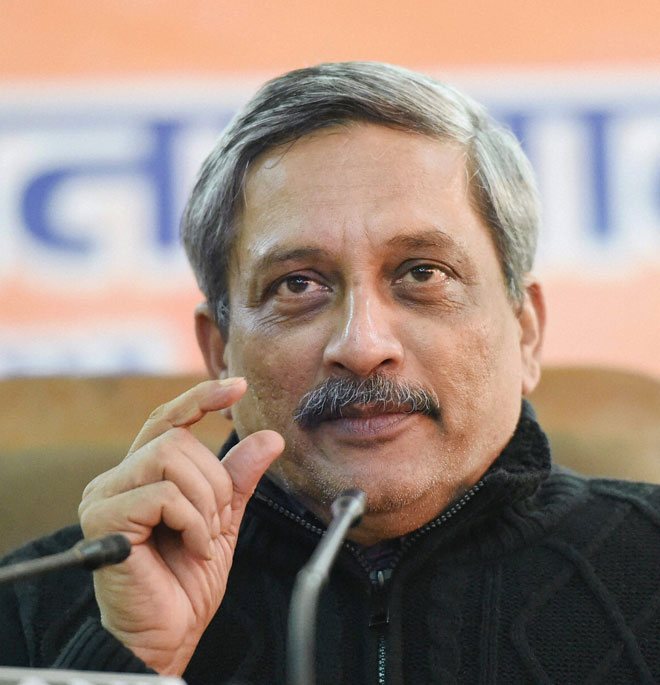 Previous Article
Previous Article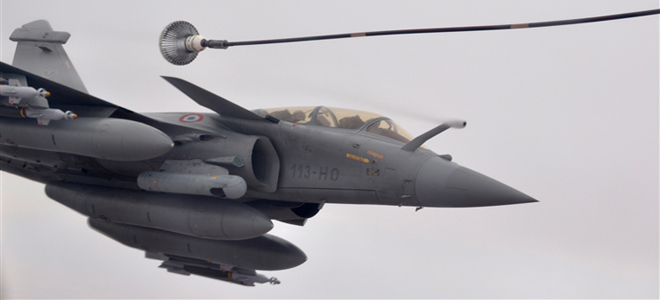 Next Article
Next Article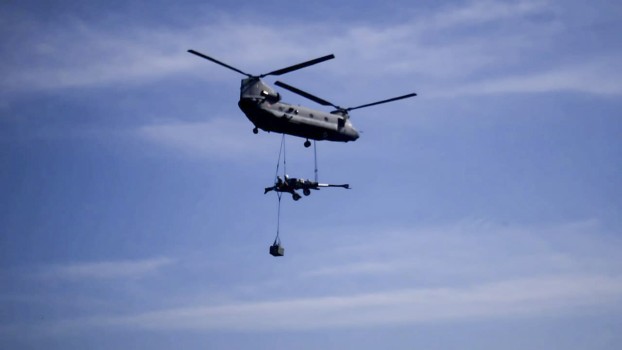

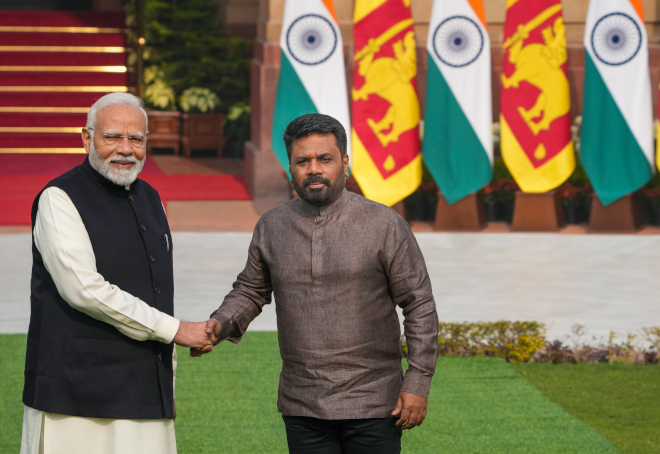
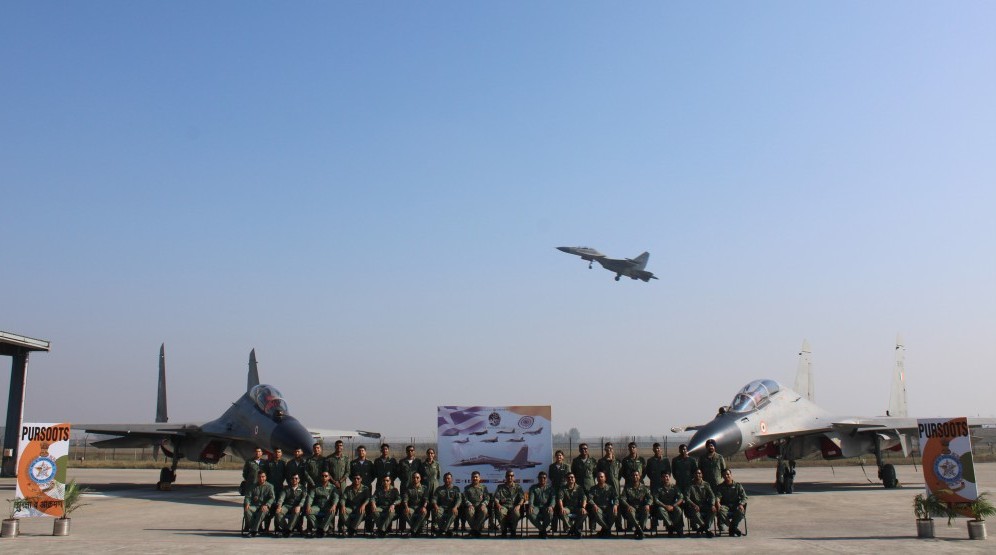










The Indian Air Force, in its flight trials evaluation report submitted before the Defence Ministry l..
view articleAn insight into the Medium Multi-Role Combat Aircraft competition...
view articleSky enthusiasts can now spot the International Space Station (ISS) commanded by Indian-American astr..
view article